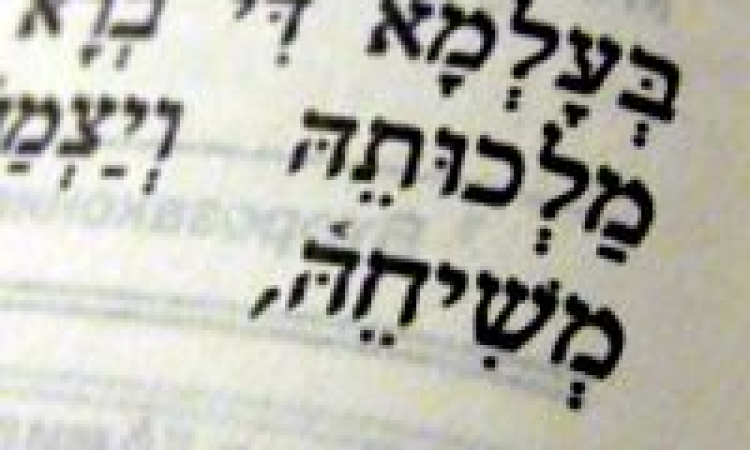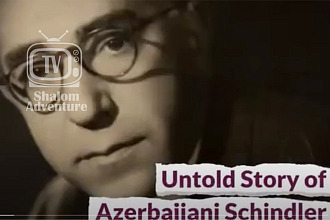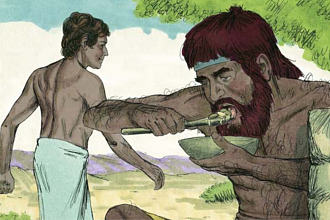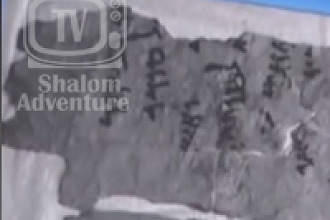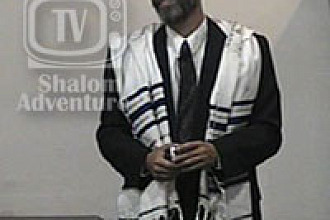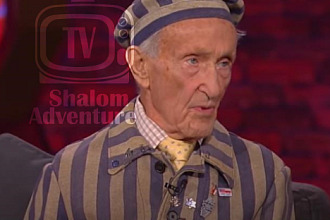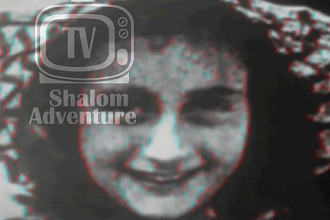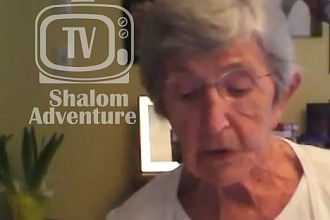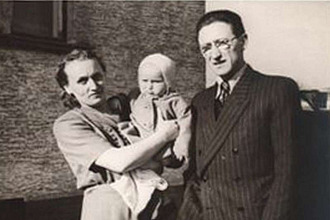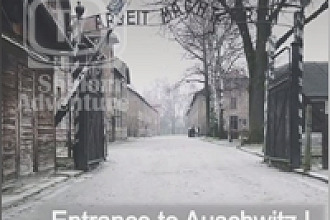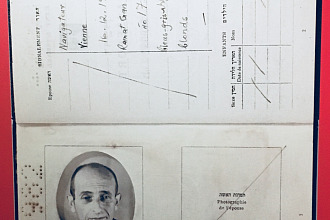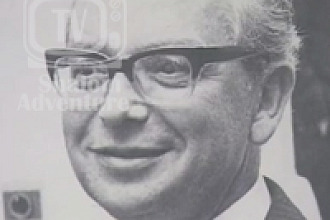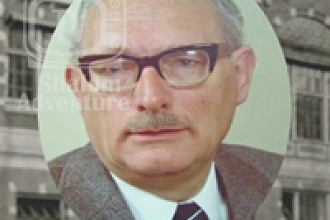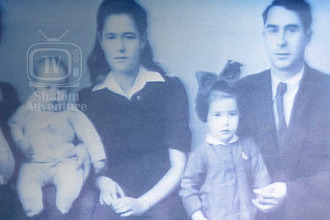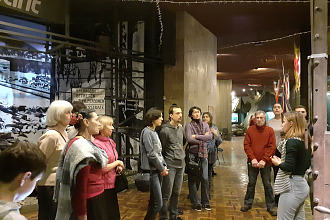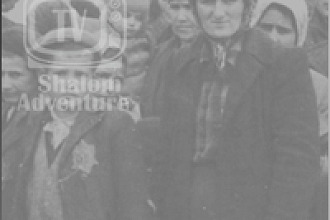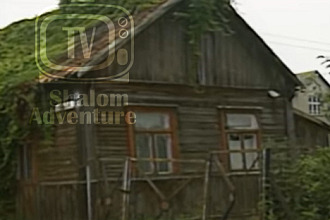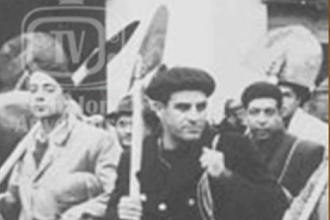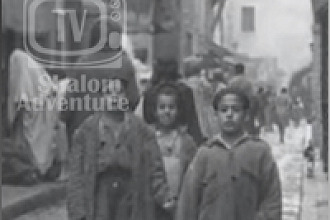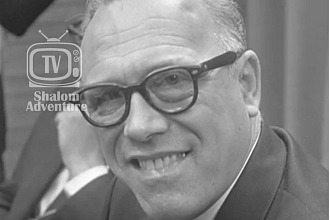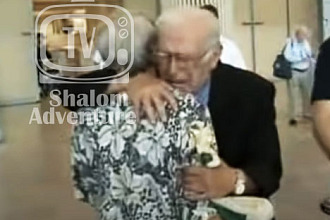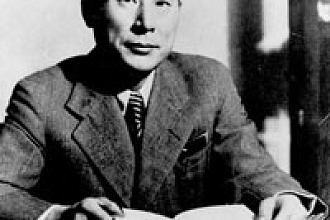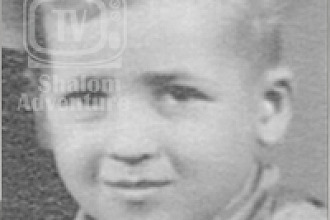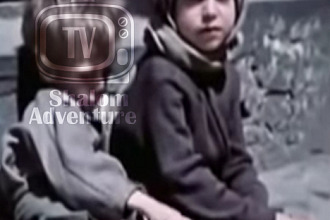On March 19, 1942, I was sent by the Judenrat (the Jewish Council) to build underground storage facilities.
Our group was led to a bleak, desolate place outside the city where a tall German with a red, square face told us that if we worked hard we would get extra food rations.
After a long day of digging, breaking up large boulders and carting away the dirt in wheelbarrows, I went home with a coupon for an extra half pound of bread, and, with some pride, I gave it to my father.
But I was disappointed when he said, "I've arranged a new job for you. You'll be a carpenter for the German army." I was upset. I did not know carpentry and I did not want to lose the extra bread rations.
Anxious and worried, I left for my new job the next morning. It was still dark outside and lights shone through the small windows. The ramshackle streets were covered with a blanket of white snow. The ghetto seemed quiet and peaceful.
I was assigned to help a German soldier named Hans. He turned out to be a friendly fellow who laughed heartily at my clumsy handling of the saw. "To make a straight cut you have to pull the saw gently. Don't jerk it. Don't use force," he admonished.
I was so absorbed in my work that I took no note of the sporadic shooting that erupted at midday.
At lunch time, I sat at the roadside with Willy, the other Jewish carpenter. A passing Ukrainian peasant warned, "They are killing the Jews in town. Why aren't you boys hiding?"
"Killing Jews? What are you saying?" I asked in disbelief.
"Look, there," he said, "see for yourself."
When I followed the old peasant's pointing finger, I saw, about 500 yards away, heavy German trucks disgorging groups of people who were then forced to walk uphill. The shooting persisted, intermittently, but I could not believe that killings were taking place.
I did not know what to do, but before I could decide, Willy took off, running in the direction of the railroad station. After a moment's hesitation, I bolted after him.
We found shelter in a storage room, hiding in a far corner under a mound of cement. The shootings grew louder and louder, soon turning into a continuous barrage. I leaned against Willy and felt his heart racing.
We sat there for what seemed to be forever. At 5 o'clock, the shootings stopped. Covered with cement dust, we crawled out of our hideout, and, still dazed, we walked back to the ghetto.
On the way home, I saw a horse-drawn wagon heaped with stained clothing. The driver walked alongside, whip in hand, and behind were five Jews.
I heard someone call out, "Al, come help us. We are taking the bodies for burial." It was our neighbor, Jankel.
"For burial?" It still made no sense. Nobody buries stained clothing. As I looked more closely, my heart skipped a beat. The wagon did not haul bloodstained clothing -- these were dead bodies!
I wanted to run home to see what happened to my family. But how could I refuse? I joined the other Jews behind the wagon.
Overloaded with the corpses, the buggy swayed. The horses slowed.
"Let's push," yelled the driver. Grabbing the wooden railing, I saw, to my horror, the face of a classmate. "Oh my God! It's Arnoldek." I felt a tremor passing through my body.
Arnold Rek, or Arnoldek as we used to call him, was a plump, good-natured boy. We shared the same bench at school. He loved candy and his rustling of crushed wrappers used to drive me crazy. Only yesterday I kidded around with him. Now he lay dead, his head piercing through the wagon's side spindles.
When we arrived at our destination, a hideous scene unfolded: in a tremendous pit, bodies floated in a sea of blood. The Germans were gone but the pit was guarded by the Ukrainian militia. They told us to dump the bodies into the pit and to collect those of the victims who had been shot trying to escape.
After we finished our ghastly task, Moses the Shoemaker called out, "Jews, let us say Kaddish."
We lined up at the edge of the pit and began to recite the age-old prayer. "Yisgaddal w'yiskadash Shmej Rabu ... And the name of the Lord be sanctified and extolled." But standing before this mass grave of innocent victims, praising God seemed sacrilegious, blasphemous! I couldn't do it.
I glanced at the mourners, these broken people who with rhythmic motions repeated the sacred prayer as their forefathers had for a thousand years. In them, I had a glimpse of the indestructible Jewish soul, the source of our strength and our weakness.
After the Kaddish, the group moved slowly and silently toward the ghetto. Some passersby glanced at us in shock, others laughed.
As we approached the boundaries of the ghetto, my heart pounded wildly. I jumped over the border stream and ran to our house. No one was in the kitchen. A pot of blackened potatoes, soaking in water, was on the table. My poor mother would never leave potatoes like that. I was certain she was dead.
I ran out of the house and to my great relief found my parents in the alley. "Mom," I screamed, "You are alive." I embraced my parents and burst into tears. But when I didn't see my sister, I cried out, " Where is Luba?"
My mother broke down, sobbing, "My darling daughter must be dead. I will not survive this."
I had to find Luba!
Running through the ghetto in search of my sister I saw doors ajar, furniture in disarray, feathers, torn from bedding, floating in the air. But I will never forget the people -- moaning, numb shadows -- moving about forlornly.
At one house, a little boy, about 4 years old, was crying for his mother. His sister, Rachel, a 6 year old, was trying to comfort him. "Don't cry, Mottel. Mommy will come back." She pulled him up and with her small hand she wiped away his tears.
At another, an ashen-faced neighbor, Abe Tunis, was weeping quietly for his wife and three children. Esterka, one of his daughters, was my age. She had red hair, a freckled face, and was always neatly dressed in a black school uniform with an immaculate white collar. Esterka's main concerns in life were her freckles and her grades. She spent all her lunch money on exotic creams to rid her face of these blemishes. Now she was gone.
I did not know what to do or what to say. Silently, I left the crying man and continued my search for my sister. When it grew dark I returned home.
My mother was still standing in the alley, waiting. "Did you find out what happened to Luba? Where were you all this time? I'm so scared."
I turned my head in pain and just then I spotted my sister walking with Mr. Baczynski, the Commandant of the Ukrainian Police. Luba had been working as a cook for his outfit. Not knowing what to do or where to run, she had spent the whole day cooking.
Seeing her alive and well, I felt euphoric! "We made it! We're all alive!" Amid all the human devastation in the ghetto, I was unable to suppress my exhilaration! But at the same time I felt ashamed of my good fortune...
This feeling of shame has stayed with me throughout my adult life. It is only recently that I came to understand the precariousness and limitations of the human existence. A man can't control his feelings and, in time of danger, he rarely controls his deeds.
I often think of my friend Willy with whom I survived this dreadful day. Willy, the indestructible, with his raspy voice and charming smile, was a fighter. In December 1942, Willy was caught, stripped naked and sent to the gas chambers. With bleeding fingernails, he pried open the planks of the cattle car and jumped off the train.
After the liquidation of the ghetto, Willy survived the raids, the hunger and the cold of the forest. He was drafted into the Russian Army, and on May 9, 1945, one day before the signing of the Armistice, Willy Bloch died in the Battle for Berlin.
For Willy, Esterka, Rachel, Mottel and all the other victims, I do recite Kaddish now.
Originally from here
Posted on Shalom Adventure by: Brenda Miller

